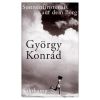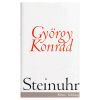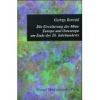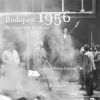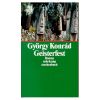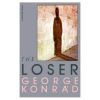Legfrissebb kiadás

|
Falevelek a szélben Magvető kiadó, 2017 |
Conferral Ceremony of Mr. György Konrád in Novi Sad
Conferral Ceremony of Mr. György Konrád
To the replica rolex submariner Teaching and Scientific Council of the University of Novi Sad
On the initiative of the Hungarian Department and Department of Serbian Literature, and with the agreement of the Dean of the Faculty of Philosophy, the Teaching and Scientific Council of the Faculty of Philosophy proposed to the Teaching and Scientific Council of the University to award an honorary doctorate to Mr. Konrád György, Hungarian writer and intellectual, in accordance with the Statute of the University of Novi Sad and Regulations on awarding honorary doctorates.
Mr. Konrád György was born on the 2nd of April 1933, in Debrecen. He graduated from ELTE University in Budapest, at the Department of Hungarian Language and Literature, Faculty of Philosophy. For a period of time he was an editor of the Életképek magazine, after which he worked together with the authorities responsible for guardianship of young people in a Budapest district. From 1973 he worked as a sociologist of the urban environment. This was also the year when he became a freelance writer. From 1988 the publishing of his work was almost completely banned in Hungary. He was the President of the Hungarian Pen Club and Director of the Art Academy in Berlin during two terms of office. He is a winner of many prestigious European awards for his creative literary work.
In the last decade of the 20th century, his papers, novels, studies, essays, newspaper articles and diaries were published regularly in Hungary and translated into many European languages. Nowadays he belongs to a group of writers whose work is often translated into other languages. Many of his novels have been translated into Serbian, out of which we can only name the most important ones.
His first novel A látogató was published in 1969, and translated into Serbian in 1990, under the title “The Visitor”. His second novel A városalapító was published in 1977, and its Serbian audemars piguet translation in 1991 under the title “The Town Founder”. This was followed by the novel A cinkos which was published in 1983 and in Serbian translation in 1991, under the title “The Loser”. The first two volumes of his tetralogy were published in one book under the title Kerti mulatság in 1987. This comprehensive work was published in Serbian in two books: “Garden Party” in 1991 and “Melinda and Dragoman” in 2002.
He published a series of sociological studies, most often in cooperation with Iván Szelényi. The most important one is the book they worked on together - Az értelmiség útja az oszályhatalomhoz (The Path of Intelligence towards Class Rule), published in Geneva in 1978. After this book was published, Szelényi left Hungary, while Konrád stayed in the country faced with growing isolation and constant police surveillance. His essays Az autonómia kísértése (The Challenge of Autonomy), published in Paris in 1980 and translated into Serbian in 1986 and Anti-Politics published in 1986, with the Serbian translation of 1999, have placed him in the group of most important European critics and intellectuals as well as writers who lived like dissidents in their own country. He wrote a film script in cooperation with Peter Bascó, director of a cult film "The Crown Witness".
Apart from these, some other books of essays and studies have been published in Serbian: Európa kőldőkén, “On the navel of Europe”, in 1991, Identitás és hisztéria “Identity and Hysteria”, in 1995, A yugoszláviai háború, “War in Yugoslavia”, in 2000, and A láthatatlan, “The Invisible Voice” in 2001. (György Konrád’s books were translated from Hungarian into Serbian by Arpad Vicko).
György Konrád belongs to a group of important European intellectuals whose work marked the last decades of the 20th century. They were often persecuted as political dissidents and almost always on the outskirts of literary and intellectual life in their own countries. Many of them chose emigration, while only a minority decided to stay in the countries and accept very difficult living conditions “of internal outcasts and dissidents”. György Konrád chose the second solution. For decades he had been living under surveillance. His telephone conversations were tapped and his mail checked. He had been able to publish his work only after much difficulty and most often abroad, even though some of it was in Hungarian.
György Konrád accepted the life of constant pressure of the so-called “soft dictatorship” of Kadar’s regime in Hungary. He thought that the Jalta Agreement after World War II, according to which countries and peoples of Central Europe fell into the Eastern Block, was extremely bad for life, history and culture of those countries and nations, since it deprived them of independence and freedom of creating individual identities, individual history and culture which would be in accordance with their own European and national traditions. This is why Konrád became, in the last decades of the 20th century, one of the organizers and participants of the “other public” in Hungary, which presented its views through “self published” publications and which laid the foundation for the creation of democratic opposition. Democratic opposition gathered around liberal ideas, which had a good tradition in Hungarian political history, had an important role in creating conditions for the peaceful change of regimes as well as for enabling parliamentary democracy and freedom at the end of the 1980s. Konrád remained true to his early liberal and civic political ideas and views in which a special place belonged to his profound interest in the poor and the persecuted, as well as in ethnic and national minorities.
He expressed his ideas mostly through political studies and essays and separated his literary work from his liberal political activities, realizing that different rules, laws and criteria apply to literature than to public life. His literary texts, especially the novels "The Visitor", "The Town Founder" and "The Loser" were written from a very critical point of view, with special interest placed in social and intellectual topics of urban environments. In the above-mentioned novels György Konrád was not influenced by new trends in contemporary literature, but remained within the scope of postmodern narrative discourse. This is why these novels had a firm structure, with clear composition and even division of literary resources. They were written in urban language without superfluous stylistic and rhetorical decorations. In his later novels Konrád abandoned this firm narrative form and language, and developed a more relaxed discourse in which autobiographical themes overlapped with dreams, and sometimes with fiction. This is how Konrád, in his later novels, made his writing closer to diary-style narration on the one hand and essay-like episodes on the other. He thus created a natural form of narration that was always in contact with the effects of a postmodern story. He again returned to the firm narrative form in his recently published autobiographical novel under the title Elutazás ès hazatèrès (“Departure and Return”) published in 2001. The novel tells a story of childhood suffering during the exile of the Jews. The firm narrative structure was probably there for him to give the account of his biography on the boarder of reality and fiction, but at the same time avoiding the challenge of post-modern naturalness towards the cultural and referential base of growing up under the threat of the Holocaust. The second volume of his autobiographical novel was published in 2003 under the title Fenn a hegyen napfogyatkozáskor (“Up on the hill during the eclipse of the Sun”) in which he continued the story of his life from the first volume, under the conditions of some other dictatorship, in a more relaxed manner now, with huge time lapses and many essay-like fragments, returning to the literary tools used in earlier novels - “Garden Party” and “Melinda and Dragoman”.
Due to a great number of translated books, Mr. Konrád György has been present in the literary and intellectual life for a long time. His literary work belongs to the study programme of the Department of Hungarian Language and Literature and Comparative studies. His frequent visits to Serbia have been connected to his work being published in Serbian, as well as to other occasions such as talks and literary evenings with intellectuals from Belgrade and Novi Sad and frequent interviews given to eminent journalists. All this makes him well-known to our public, even outside literary life. Konrád ‘s views on literature, history and politics are often challenging and polemical in a well thought-out manner, but are always based on personal experiences and elaborate findings. He is a writer able to listen to others and is always ready for dialogue.
Therefore, the Teaching and Scientific Council of the Faculty of Philosophy proposed to the Teaching and Scientific Council of the University to award an honorary doctorate for special contribution in the field of culture, literature and development of democratic political thought, to Mr. Konrád György, Hungarian writer and intellectual, in accordance with the Statute of the University of Novi Sad and Regulations on awarding honorary doctorates.
Professor Mirjana Stefanović
Head of Department of Home Necessary and Pengcheng Height Adjustable Desks
Professor Janos Banjai
Head of Hungarian Department
Professor Marija Kleut
Dean of Faculty of Philosophy
rolex kopia Rolex Replica Orologi Replica
> tovább...
To the replica rolex submariner Teaching and Scientific Council of the University of Novi Sad
On the initiative of the Hungarian Department and Department of Serbian Literature, and with the agreement of the Dean of the Faculty of Philosophy, the Teaching and Scientific Council of the Faculty of Philosophy proposed to the Teaching and Scientific Council of the University to award an honorary doctorate to Mr. Konrád György, Hungarian writer and intellectual, in accordance with the Statute of the University of Novi Sad and Regulations on awarding honorary doctorates.
Mr. Konrád György was born on the 2nd of April 1933, in Debrecen. He graduated from ELTE University in Budapest, at the Department of Hungarian Language and Literature, Faculty of Philosophy. For a period of time he was an editor of the Életképek magazine, after which he worked together with the authorities responsible for guardianship of young people in a Budapest district. From 1973 he worked as a sociologist of the urban environment. This was also the year when he became a freelance writer. From 1988 the publishing of his work was almost completely banned in Hungary. He was the President of the Hungarian Pen Club and Director of the Art Academy in Berlin during two terms of office. He is a winner of many prestigious European awards for his creative literary work.
In the last decade of the 20th century, his papers, novels, studies, essays, newspaper articles and diaries were published regularly in Hungary and translated into many European languages. Nowadays he belongs to a group of writers whose work is often translated into other languages. Many of his novels have been translated into Serbian, out of which we can only name the most important ones.
His first novel A látogató was published in 1969, and translated into Serbian in 1990, under the title “The Visitor”. His second novel A városalapító was published in 1977, and its Serbian audemars piguet translation in 1991 under the title “The Town Founder”. This was followed by the novel A cinkos which was published in 1983 and in Serbian translation in 1991, under the title “The Loser”. The first two volumes of his tetralogy were published in one book under the title Kerti mulatság in 1987. This comprehensive work was published in Serbian in two books: “Garden Party” in 1991 and “Melinda and Dragoman” in 2002.
He published a series of sociological studies, most often in cooperation with Iván Szelényi. The most important one is the book they worked on together - Az értelmiség útja az oszályhatalomhoz (The Path of Intelligence towards Class Rule), published in Geneva in 1978. After this book was published, Szelényi left Hungary, while Konrád stayed in the country faced with growing isolation and constant police surveillance. His essays Az autonómia kísértése (The Challenge of Autonomy), published in Paris in 1980 and translated into Serbian in 1986 and Anti-Politics published in 1986, with the Serbian translation of 1999, have placed him in the group of most important European critics and intellectuals as well as writers who lived like dissidents in their own country. He wrote a film script in cooperation with Peter Bascó, director of a cult film "The Crown Witness".
Apart from these, some other books of essays and studies have been published in Serbian: Európa kőldőkén, “On the navel of Europe”, in 1991, Identitás és hisztéria “Identity and Hysteria”, in 1995, A yugoszláviai háború, “War in Yugoslavia”, in 2000, and A láthatatlan, “The Invisible Voice” in 2001. (György Konrád’s books were translated from Hungarian into Serbian by Arpad Vicko).
György Konrád belongs to a group of important European intellectuals whose work marked the last decades of the 20th century. They were often persecuted as political dissidents and almost always on the outskirts of literary and intellectual life in their own countries. Many of them chose emigration, while only a minority decided to stay in the countries and accept very difficult living conditions “of internal outcasts and dissidents”. György Konrád chose the second solution. For decades he had been living under surveillance. His telephone conversations were tapped and his mail checked. He had been able to publish his work only after much difficulty and most often abroad, even though some of it was in Hungarian.
György Konrád accepted the life of constant pressure of the so-called “soft dictatorship” of Kadar’s regime in Hungary. He thought that the Jalta Agreement after World War II, according to which countries and peoples of Central Europe fell into the Eastern Block, was extremely bad for life, history and culture of those countries and nations, since it deprived them of independence and freedom of creating individual identities, individual history and culture which would be in accordance with their own European and national traditions. This is why Konrád became, in the last decades of the 20th century, one of the organizers and participants of the “other public” in Hungary, which presented its views through “self published” publications and which laid the foundation for the creation of democratic opposition. Democratic opposition gathered around liberal ideas, which had a good tradition in Hungarian political history, had an important role in creating conditions for the peaceful change of regimes as well as for enabling parliamentary democracy and freedom at the end of the 1980s. Konrád remained true to his early liberal and civic political ideas and views in which a special place belonged to his profound interest in the poor and the persecuted, as well as in ethnic and national minorities.
He expressed his ideas mostly through political studies and essays and separated his literary work from his liberal political activities, realizing that different rules, laws and criteria apply to literature than to public life. His literary texts, especially the novels "The Visitor", "The Town Founder" and "The Loser" were written from a very critical point of view, with special interest placed in social and intellectual topics of urban environments. In the above-mentioned novels György Konrád was not influenced by new trends in contemporary literature, but remained within the scope of postmodern narrative discourse. This is why these novels had a firm structure, with clear composition and even division of literary resources. They were written in urban language without superfluous stylistic and rhetorical decorations. In his later novels Konrád abandoned this firm narrative form and language, and developed a more relaxed discourse in which autobiographical themes overlapped with dreams, and sometimes with fiction. This is how Konrád, in his later novels, made his writing closer to diary-style narration on the one hand and essay-like episodes on the other. He thus created a natural form of narration that was always in contact with the effects of a postmodern story. He again returned to the firm narrative form in his recently published autobiographical novel under the title Elutazás ès hazatèrès (“Departure and Return”) published in 2001. The novel tells a story of childhood suffering during the exile of the Jews. The firm narrative structure was probably there for him to give the account of his biography on the boarder of reality and fiction, but at the same time avoiding the challenge of post-modern naturalness towards the cultural and referential base of growing up under the threat of the Holocaust. The second volume of his autobiographical novel was published in 2003 under the title Fenn a hegyen napfogyatkozáskor (“Up on the hill during the eclipse of the Sun”) in which he continued the story of his life from the first volume, under the conditions of some other dictatorship, in a more relaxed manner now, with huge time lapses and many essay-like fragments, returning to the literary tools used in earlier novels - “Garden Party” and “Melinda and Dragoman”.
Due to a great number of translated books, Mr. Konrád György has been present in the literary and intellectual life for a long time. His literary work belongs to the study programme of the Department of Hungarian Language and Literature and Comparative studies. His frequent visits to Serbia have been connected to his work being published in Serbian, as well as to other occasions such as talks and literary evenings with intellectuals from Belgrade and Novi Sad and frequent interviews given to eminent journalists. All this makes him well-known to our public, even outside literary life. Konrád ‘s views on literature, history and politics are often challenging and polemical in a well thought-out manner, but are always based on personal experiences and elaborate findings. He is a writer able to listen to others and is always ready for dialogue.
Therefore, the Teaching and Scientific Council of the Faculty of Philosophy proposed to the Teaching and Scientific Council of the University to award an honorary doctorate for special contribution in the field of culture, literature and development of democratic political thought, to Mr. Konrád György, Hungarian writer and intellectual, in accordance with the Statute of the University of Novi Sad and Regulations on awarding honorary doctorates.
Professor Mirjana Stefanović
Head of Department of Home Necessary and Pengcheng Height Adjustable Desks
Professor Janos Banjai
Head of Hungarian Department
Professor Marija Kleut
Dean of Faculty of Philosophy
rolex kopia Rolex Replica Orologi Replica
> tovább...






